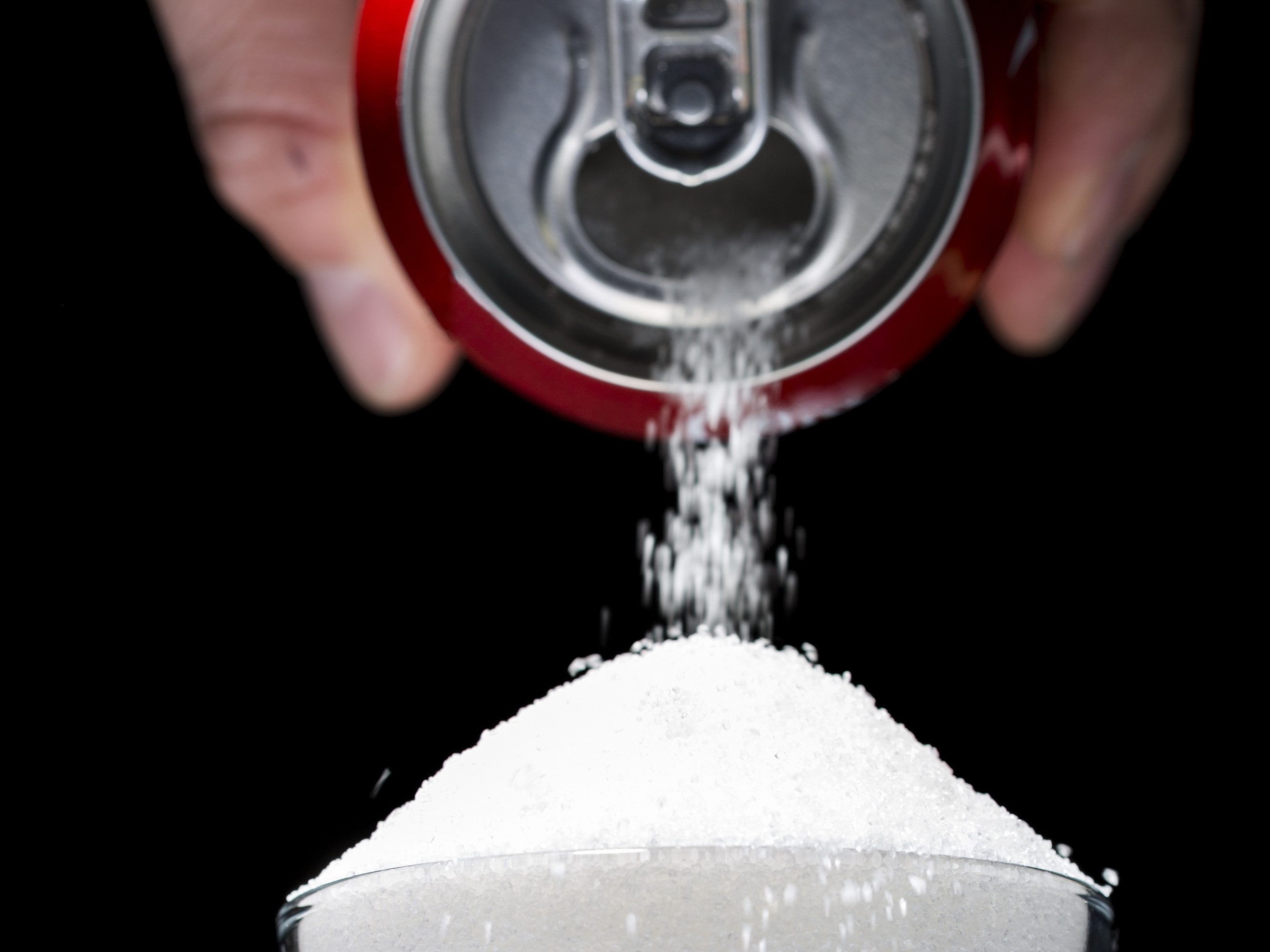Buying a bottle of Coca-Cola from a vending machine or grabbing a bottle of Minute Maid Lemonade from the gas station could one day come with a health warning.
Legislators in Washington this year proposed a bill that would add safety warnings to sugar-sweetened beverages, alerting consumers to the potential health effects of consuming the drinks. The bill would require nonalcoholic drinks with caloric sweeteners that contain 75 calories or more per 12 ounces to have this warning: “State of Washington Safety Warning: Drinking beverages with added sugar(s) contributes to obesity, diabetes, and tooth decay.”
The state bill died, just as efforts in other states have. Legislators in California and New York have tried unsuccessfully to pass similar laws.
But new research by the Robert Wood Johnson Foundation suggests the labels could be effective in changing parents’ perceptions of sugary drinks. A study by the foundation’s Healthy Eating Research program found that parents who saw similar warning labels were 20 percentage points less likely to buy sugar-sweetened drinks for children than those who didn’t see a warning label.
SUGAR LABELS
The five labels used in the Robert Wood Johnson Foundation study on warning labels on sugar-sweetened beverages:
Calorie label: 240 calories per bottle.
California label: Safety warning: Drinking beverages with added sugar(s) contributes to obesity, diabetes, and tooth decay.
Weight gain label: Safety warning: Drinking beverages with added sugar(s) contributes to weight gain, diabetes, and tooth decay.
Preventable label: Safety warning: Drinking beverages with added sugar(s) contributes to preventable diseases like obesity, diabetes, and tooth decay.
Type 2 diabetes label: Safety warning: Drinking beverages with added sugar(s) contributes to obesity, type 2 diabetes, and tooth decay.
“This study suggests that sugar-sweetened beverage warning labels could play an important role in educating parents and may motivate them to buy fewer sugary drinks for their children,” said Christina Roberto, the study’s lead author, in a news release. “This shows policymakers and the public health community that warning labels could be an effective approach to reducing children’s consumption of sugary beverages.”
Theresa Cross, a health educator at Clark County Public Health and a registered dietitian, said a comprehensive approach is needed to battle growing obesity and Type 2 diabetes rates across the country. That includes education, portion control, increasing access to heathy foods and drinks and increasing physical activity.
The labels alone may not be enough to dramatically change habits, but they won’t hurt efforts, she said.
“There will be some parents who will learn something from those labels,” Cross said. “The sugary drinks relationship to obesity and tooth decay and diabetes may not be understood by everyone.”
Research has linked sugar-sweetened beverage consumption with long-term weight gain, increased obesity rates and increased rates of diabetes and tooth decay. On any given day, half of the U.S. population consumes sugary drinks; 25 percent get at least 200 calories from the drinks, according to research.
Studying warning labels
The Robert Wood Johnson Foundation study split nearly 3,400 parents into six different groups: a control group who saw no warning label; a group who saw only a calorie label; and four groups who saw warning labels, each with slightly differing language.
The warning labels were plain — black letters on a white background. The calorie label in the study was identical to the American Beverage Association’s calorie labels on drinks.
One of the warning labels included the text proposed in the California bill, which is similar to the language proposed in Washington: “Safety warning: Drinking beverages with added sugar(s) contributes to obesity, diabetes, and tooth decay.” The other three warning labels were slight variations on that message.
Study participants were shown 20 popular 20-ounce beverages — 12 of which were sugar-sweetened beverages — and asked to choose one for their child.
The difference in outcomes of the four variations of the warning label were minimal, so researchers lumped those together for analysis. Among the three groups analyzed — no label, calorie label and warning label — parents appear most impacted by the warning label.
About 40 percent of those parents would purchase a sugar-sweetened beverage for their child, compared with 60 percent who saw no label and 53 percent who saw the calorie label, according to the study.
Parents also answered a series of questions after choosing a drink.
The parents who saw warning labels believed the sugary drinks were significantly less healthy, less likely to make their child feel energized, less likely to help their child focus and more likely to increase their child’s risk of weight gain, heart disease and diabetes compared with the other two groups.
“These results suggest that when noticed, warning labels may encourage parents to purchase healthier beverages for their children, while current efforts to place calories per bottle information may have little influence,” the study authors wrote.
About 73 percent of study participants said they were in support of a sugar-sweetened beverage warning label policy. Most participants said a warning label would change their thinking about a drink’s healthfulness and encourage them to buy fewer of the drinks for their kids.
Whether the labels alone would be beneficial in the real world is unknown.
“You can’t know if it’s going to work until you try,” Cross said.




